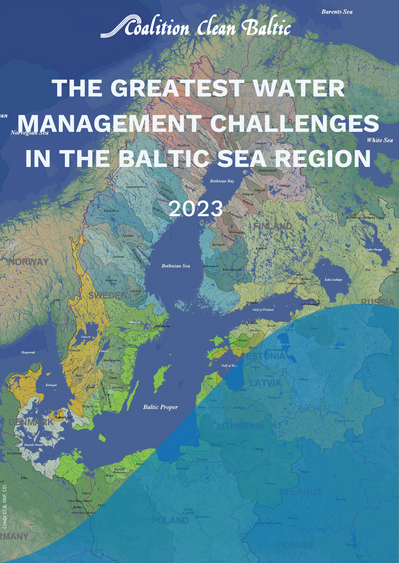The Greatest Water Management Challenges in the Baltic Sea Region
The new CCB Report “The Greatest Water Management Challenges in the Baltic Sea Region” is now available.

10th August 2023 - The Water Framework Directive (WFD) is one of the most important legislations in place in Europe to protect the aquatic environment and secure water quality for human needs through a holistic and adaptive freshwater governance system.
In our
newly published report “The Greatest Water Management Challenges in the Baltic Sea Region”, we present an assessment of the current water management situation in 8 Baltic countries where the data were available. We describe the status of natural retention, how efficient water management planning is and what actions are particularly needed. We address the essence of restoration of natural retention as remedy for current water management problems.
“This new report is an interesting look at the possible challenges and threats to the Baltic Sea from the perspective of Baltic countries that are struggling with various investment and organizational problems, affecting the quality of Baltic waters and ecosystems dependent on surface and ground waters”, commented Prof. dr hab. inż. Tomasz Walczykiewicz, Vice-Chairman of the IMGW-PIB Scientific Council in his opinion (1).
It is known already that the Good Ecological Status (GES) of waters will not be achieved by most countries by 2027, which is the deadline set by the WFD.
Our research confirms that the existing model of water resources management does not fully provide a solution to water problems and more - it needs stronger cross-sectoral and transboundary cooperation. It is crucial to remember about our WHY- making and our national efforts. We must also remember that a Good Ecological Status in the Baltic is strongly dependent on the Good Ecological Status of the rivers in the catchment.
Therefore, further steps to improve the condition of the Baltic Sea must be pursued in every possible way, such us:
- Nutrient reduction and implementation of buffer zones as a standard in the BSR
- Progress in dam removal and re naturalisation of rivers
- Massive and immediate cessation of drainage of wetlands and reduction of maintenance activities on rivers
- Improvements in wastewater management
- Recovery plan for Ukraine's war damages related to water and sanitation
“In order to take action on such a wide scale of needs, investment funds for the cohesion policy and regional development are necessary. It is also necessary to improve water management and to adapt the EU Common Agricultural Policy. Not one river, not one country counts on it”, says Ewa Leś,
editor & one of the authors of the Report and CCB Working Area Leader on Eutrophication.
This report is aiming to support and foster positive changes in integrated sustainable water management in the Baltic Sea region countries, through a source to sea approach.
Furthermore, an extended analysis about major challenges for water management in Poland will be available soon.
***
NOTES
(1) The full opinion is available in the Report´s preface (page 5).


